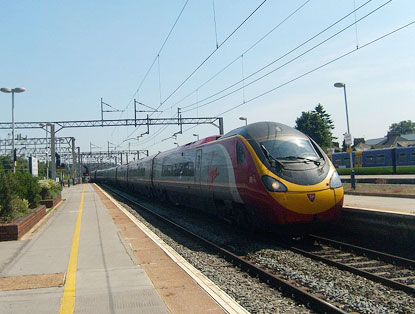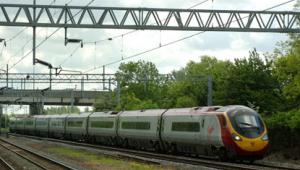By Richard Johnstone | 26 February 2013
The botched award of the West Coast rail franchise and subsequent scrapping of the deal will cost taxpayers at least £50m in extra fees, the Public Accounts Committee has revealed.

Examining the cancellation of the contract, the MPs found the Department for Transport had failed to properly manage the competition to operate on the line, and ‘made fundamental errors’.
Ministers awarded a 13-year franchise, worth £5.5bn, to First Group last August, but incumbent operator Virgin challenged this and sought a judicial review. An examination of the deal by the DfT in preparation for this revealed what Transport Secretary Patrick McLoughlin called ‘unacceptable mistakes’. This led to the contract being halted in October, and Virgin being given an extension until November 2014.
Today’s Lessons from cancelling the InterCity West Coast franchise competition found the additional costs to the public purse would be ‘significant’. A previous estimate by the National Audit Office said the figure was likely to exceed £9m, but this did not include compensation to bidders. When this is included, the cost will reach £50m ‘at the very least’, committee chair Margaret Hodge said.
MPs found the competition failed because the department ‘did not get basic processes right’.
Among the mistakes, civil servants incorrectly calculated the financial guarantees required from bidders to balance the riskiness of their bid. In particular, they failed to include inflation in the calculation.
They also applied discretion when deciding the final amount, which was not allowed in the rules governing the process. This meant First Group was asked for a lower security payment than Virgin, even though First’s proposal was riskier as it was based on higher payments to government towards the end of the franchise period.
‘The department made fundamental errors in calculating the level of risk capital it would require bidders to put on the table and it did not demand appropriate levels of capital from both bidders,’ Hodge said.
The flaws in the award showed the DfT had ‘failed to learn from previous disasters’, including the collapse of London Underground maintenance firm Metronet, she added. ‘It failed to heed advice from its lawyers. It failed to respond appropriately to early warning signs that things were going wrong.’
This led to concerns that similar errors could be made in future projects, the committee said, including the High Speed 2 line and the upcoming Thameslink rail franchise.
‘The department needs to get its house in order and put basic principles and practices at the heart of what it does, with an appropriately qualified and senior person in charge of the project throughout and an accessible leadership team ready and willing to hear and act on warning signs,’ Hodge said.
Responding to the report, a DfT spokeswoman said the department’s own inquiry, undertaken by Centrica chief executive Sam Laidlaw, had ‘identified the unique and exceptional circumstances which led to failures’.
She added: ‘The department has accepted all the recommendations and has taken immediate steps by bringing together all rail activity under a single director general and recruiting a senior director to lead the franchising programme, as well as improving internal governance and strengthening oversight and accountability.
‘Not only will these reinforce the franchising process but will also protect rail infrastructure projects such as HS2 and the biggest programme of rail electrification.’





















